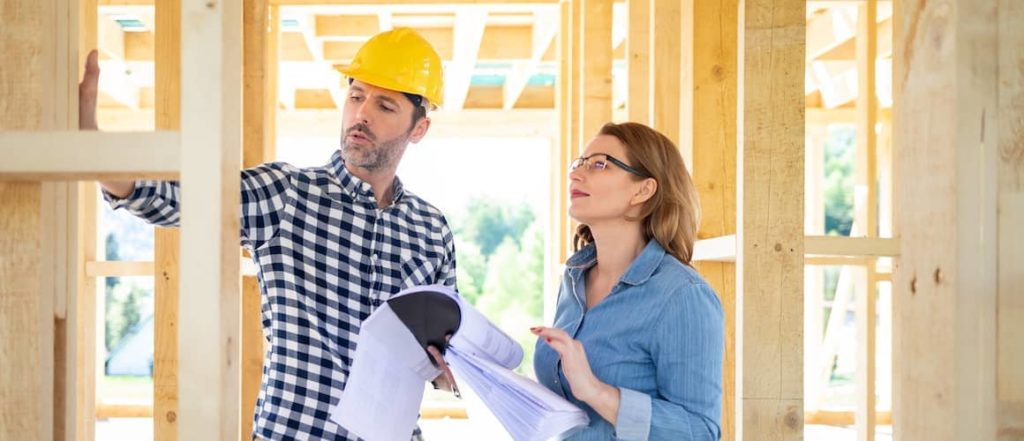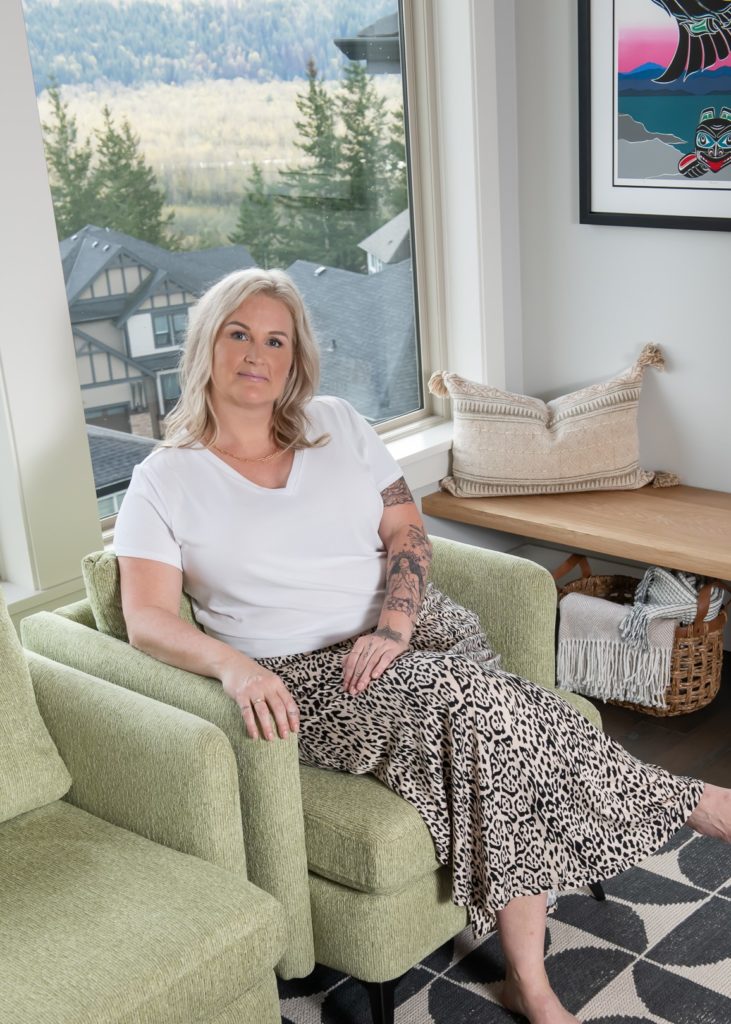If you own a home, looking to buy or sell a home or even rent, you know that we are experiencing inflation of everything from groceries to raw materials, increasing interest rates and a potential housing market crash, experts predict.
RBC Economics’ newly released market forecast expects home sales and prices will continue to deepen into the fall and through next year. Home sales will drop by another 17% nationwide by early 2023 — following drops of 19% in the second quarter and 13% between the first quarter of 2021 and the first quarter of 2022.
This would lead to a 42% drop from the record-high levels experienced in early 2021, which would exceed the previous peak-to-trough declines of all four previous national downturns: a drop of 33% in 1981-1982, a drop of 33% in 1989-1990, a drop of 38% in 2008-2009, and a drop of 20% in 2016-2018.
RBC surmises that based on its forecast, a “historic correction underway” is now underway in Canada, but it emphasizes that this is not a “collapse” of the housing market. The federal government’s decision to open the flood doors to immigration and the low likelihood of overbuilding new housing supply will “keep the market from entering a death spiral.” (source: Daily Hive)

Statistics Canada tells us that residential building construction costs increased 5.6% in the first quarter of 2022, the highest increase since the second quarter of 2021. Non-residential building construction costs were up 2.6% in the first quarter.
Rising residential construction costs were largely driven by rebounding softwood lumber prices.
Contractors attributed part of the growth in building construction costs to the rise in labour costs, and a surge in the number of vacancies for construction trades has contributed to increased wages in these occupations. In addition, amid rising fuel prices, contractors cited that a larger share of their expenses were now allocated to the transportation of their building materials.
Everything is more expensive, we know that. We see it in the grocery store, at the gas pump, and in our favourite clothing stores. But, that does not mean you have to put your construction or real estate plans on hold. It only means you have to be informed and make smart decisions. I have rounded up industry professionals who have offered their expert advice on everything housing related : mortgages, rising interest rates, real estate, construction costs, inflation and the best investments to make right now.
We have seen the cost of home goods & building materials skyrocket over the last 2-3 years. Although it has levelled out in some areas recently , we are still experiencing inflation and supply chain issues throughtut the construction industry. Labour shortages in factories and manufacturing plants, raw material shortages and high fuel and delivery costs have all contributed to increased costs to the end user - you. People still want to renovate and build homes, so how can you still move forward with your project and maintain your budget?
PLAN, PLAN AND PLAN SOME MORE.
Did I mention planning? You don’t wake up and decide to renovate or build a house. You’ve likely been thinking about this for a long time. Our blog on PLANNING FOR A SUCCESSFUL RENOVATION is worth another read if you have not read it already. We outline all the steps involved in planning for success, and you can download our free renovation planner and budget worksheet.

A well thought out budget is the first key step in planning any major project. But, do you know what all of the the costs are involved in a reno or new home build? You can read more on this topic here.
The scope of work goes hand in hand with yoru budget. It is easy to get carried away and planning to do absolutely everything on your wish list, but many people are not aware of the costs of a reno or new-build.
I always suggest a wish list to my clients. A list of "must haves" and "would like to haves". This will help you in narrowing down your project scope if you are dealing with budget constraints.
Using the high-low method approach is another useful tool in your planning. It allows for the mixing of high end items with inexpensive products and supplies.
You may want to splurge on heavy use items like appliances, flooring, lighting, kitchen countertops & cabinetry to ensure good durability and longevity. You might then want save in other areas such as your backsplash tile (so many budget friendly options out there), countertops & cabinetry in your laundry room and other not so-often used rooms.
If you’re thinking of renovating or building, you can learn more about what the design process looks like here. If you need help on a project, contact me and we can discuss how I can help!

With declining house prices and increasing interest rates, a lot of buyers have hit the pause button and are waiting to see how this will affect the market, while sellers are sitting on the fence to see if now a good time is to sell
Buyers, you now have negotiating power and the chance to take your time and choose a home that is right for your family, at a decreased price compared to February 2022 prices. In speaking with a mortgage broker, they made the analogy to “marry the house and date the rate”. What this refers to is buying the home for a lower price, riding out the higher interest rate, and refinancing when interest rates come back down again (because historically proven, they do) as opposed to waiting for the interest rates to come down and house prices to come back up – you’ll be winning in the end!
Sellers, chances are if you are selling then you have to buy too. Selling your home at a lower price means you will also be purchasing at a lower price, which makes it all relative. In my opinion, now is not the time to “cash out” on investment properties, rather it’s the time to purchase investment properties!
Investing in real estate is one of the best investments you can make; real estate offers cash flow opportunities, tax breaks, equity building, and a hedge against inflation. Don’t wait to buy real estate, buy real estate, and wait.
Visit Lindsay on-line to discuss your real estate needs

Kara Day - CFP, CLU, EPC
Certified Financial Planner Professional
DOWN MARKETS PRESENT GOOD BUYING OPPORTUNITY
With rising interest rates, poor earnings and a recession already priced into the markets, the next 6 months could present a great buying opportunity for investors.
Stock market corrections are common: since 1980, the S&P 500 index has fallen by 14.3%, on average, in any given calendar year. But the index has been positive 78% of those years with an average return of 10.3%. Real money is made during down markets.
And markets have been quite resilient during, or immediately after, difficult times. Amid the global financial crisis in 2008, the S&P 500 registered a calendar year return of -38%. However, in 2009 and 2010, the index posted returns of 23% and 13%, respectively.
Now, leading economic indicators are pointing toward a possible recession in the first quarter of 2023. Most economists believe, however, that if we get a recession, it will be mild, because strong employment rates and positive consumer spending in the U.S. and Canada could cushion the impact of a recession.
Canada’s unemployment rate was 5.4% in August, having hit its lowest level since 1976 in June. The U.S. unemployment rate in August was even lower at 3.7%.
With rising rates and more down markets likely in the months ahead, there is a prime buying opportunity for investors, especially when it comes to fixed income. As an example, investment-grade credit has yields between 4% and 5% now, compared with 1.5% at the start of the pandemic.
With supply chain issues, inflation, and interest rates going up, it’s been a tough year for both equity markets and fixed income. No one has a crystal ball, but I believe that has set up the runway for the next couple of years of great returns.
Visit Kara Day on-line for help with your financial planning needs

WHAT THE HECK IS GOING ON ??
Mortgage rates have been on a steady rise in 2022, dramatically changing the lending environment and
trickling down to the housing market as we enter Fall. Just last week, the Governing Council of The Bank
of Canada raised its target for the overnight policy rate by 75 basis points (0.75%) to 3.25% and
signalled, quite clearly, that the policy rate would rise further. They have indicated that 3.25% is no
longer sufficiently restrictive to temper domestic demand to levels consistent with the 2% inflation
target.
WHAT DOES THIS MEAN?
Paraphrasing Bank of Canada Governor Tiff Macklem’s op-ed piece in the National Post, inflation is
simply too high and will remain that way for some time to come. “Many of the global factors that have
pushed up inflation won’t go away quickly enough — supply chain disruptions continue, geopolitical
tensions are high, and commodity prices remain volatile. And here at home, our economy has been
running too hot. As Canadians finally enjoy a fully reopened economy, they want to buy more goods and
services than our economy can produce. Businesses are having trouble keeping up with demand, and
that’s leading to delays and higher prices. The result is broad-based inflation.”
Seeing as it is the Central Banks job to control inflation, their responsibility is to cool things down. One way they are doing this is through higher interest rates. This, in turn, raises the cost of borrowing, which typically triggers consumers to borrow and spend less money, and save more. The Bank is trying to get consumers to slow down their spending to allow supply time to catch up with demand and take the wind out of the sails of inflation.
In terms of the housing market, higher mortgage costs are slowing down housing activity and moderating housing prices after seeing unsustainable growth throughout the pandemic. With hindsight, we can see that The Bank was behind the curve and that they kept mortgage rates low for far too long, triggering excess demand in the red-hot housing sector. As housing starts to slow, consumer spending on housing related goods and services, such as renovations, appliances and furniture, should also start to slow.
Why is The Bank of Canada raising rates when everything is already so expensive? Well, simply put, raising borrowing costs in the short term will bring inflation down in the long term. This will potentially put many people into an uncomfortable financial situation, but The Bank has made it very clear that eliminating high inflation is their ultimate goal and they will proceed aggressively until they return to the 2% target level.
WHAT DOES THIS MEAN FOR YOU?
As far as housing prices go, BC seems to be lagging a little bit behind other parts of the country that have seen pricing drops already.Sellers are reluctant to accept that the sky-high prices posted earlier this year are no longer. The rapid-fire turnover we experienced over the past year has been replaced with longer listing times, fewer multiple listing scenarios, and many successful buyers are now able to add a financing condition to their offers. Realtors I work with have confirmed that buyers and sellers seem to still be very far apart in their expectations. What sellers will need to realize is that it is now incredibly more expensive and difficult for purchasers to obtain financing. As rates began to rise in earnest in March 2022, we are now well outside of any potential rate holds that were still fuelling high prices.
The implications of the Bank of Canada action are considerable for the housing market. The prime rate has now quickly risen to 5.45%, increasing the variable mortgage interest rate another 75 bps. The new qualifying rate for new borrowers and current mortgage holders will likely increase to roughly 7%.
Fixed mortgage rates, tied to the 5-year government of Canada bond yield, will also rise, but not nearly as much. Expectations of an economic slowdown have muted the impact of higher short-term interest rates on longer-term bond yields. It is noteworthy that the Bank omitted the usual comment on a “soft landing in the economy” in last weeks press release. Bank economists realize that the price paid for inflation control might well be at least a mild recession. Economists are predicting another 0.75% rise in the prime rate by the end of the year, and likely higher in 2023. The Bank of Canada will hold the target policy rate at its ultimate high point – at least 2-3 rate hikes away – through much of 2023, if not beyond. A return to 2% inflation will not occur until at least 2024.
For current mortgage holders, it is important to be on top of what’s happening with your finances. As Canada’s lending prime has increased, variable rates have increased, as these are rates that are tied to the prime rate. Payments need to increase to ensure the scheduled amortization remains the same and you will still pay off your mortgage in the original amortized time. For those individuals in a fixed rate mortgage, you will not be affected by these interim changes outside of renewing your mortgage. If your mortgage is up for renewal in the coming 18 months, you will likely be renewing at a higher interest rate. If you’re six months away from renewing, it may be a good idea to look into options for early renewal to avoid getting caught up in another interest rate hike later this year.
If you’re not currently a homeowner, but were looking to get into the marketplace, it is a good idea to re-evaluate your budget and potential calculations for homeownership to ensure that your estimates are in line with the new interest rates and increased qualifying rate.
While interest rates do affect everyone, understanding the dollar value change for your situation and adjusting your budget accordingly, can help to ease the pressure from increased mortgage costs. If you have questions or are not sure what your next move should be, don’t hesitate to reach out to me. I’d be happy to review your situation and walk you through your options.
Reach out to Nicole to discuss your mortgage options